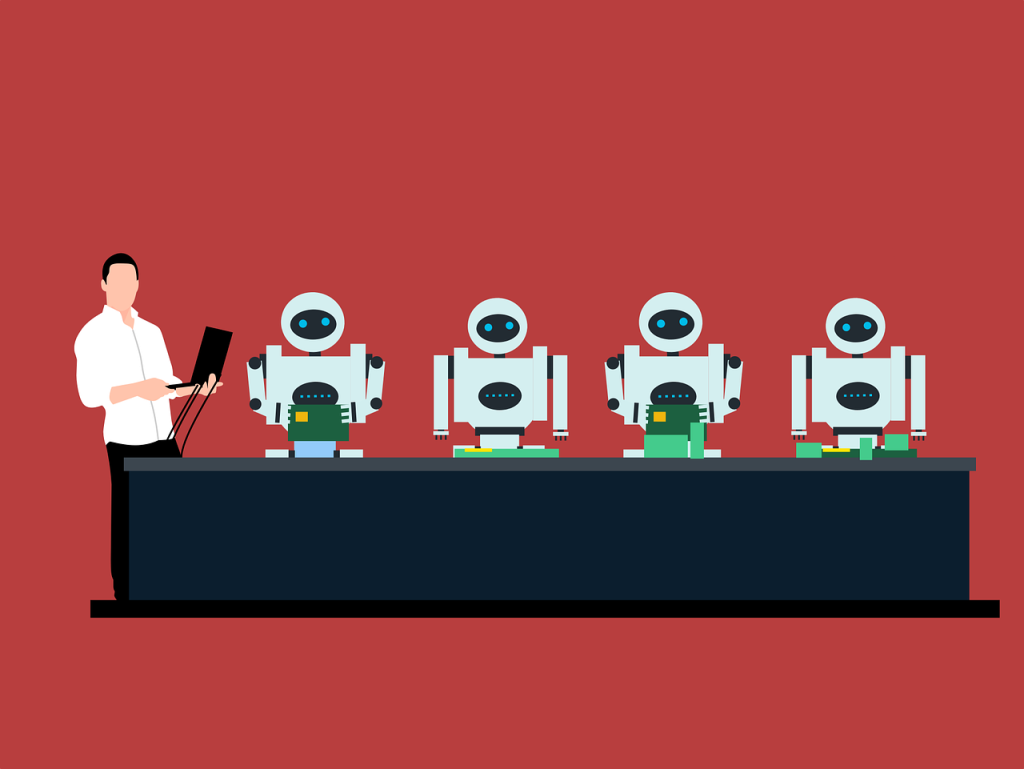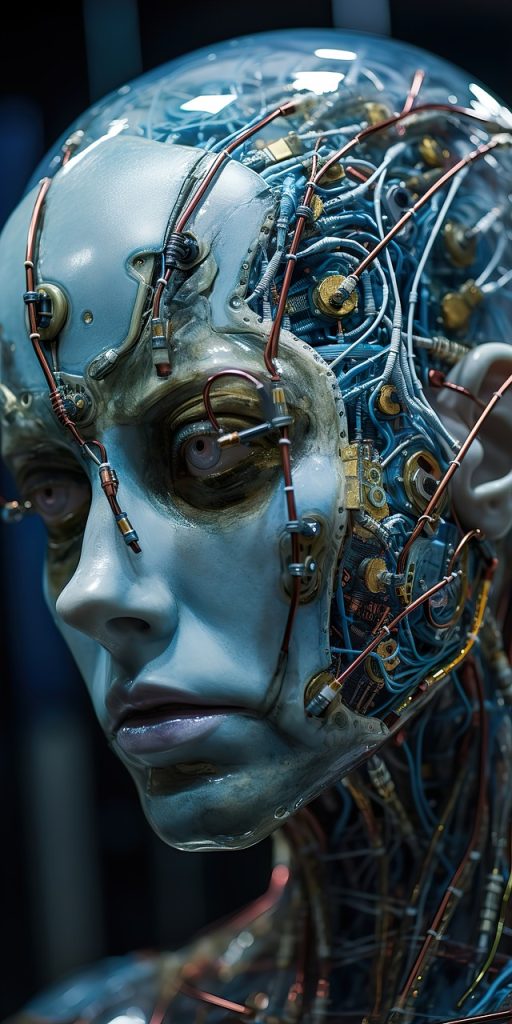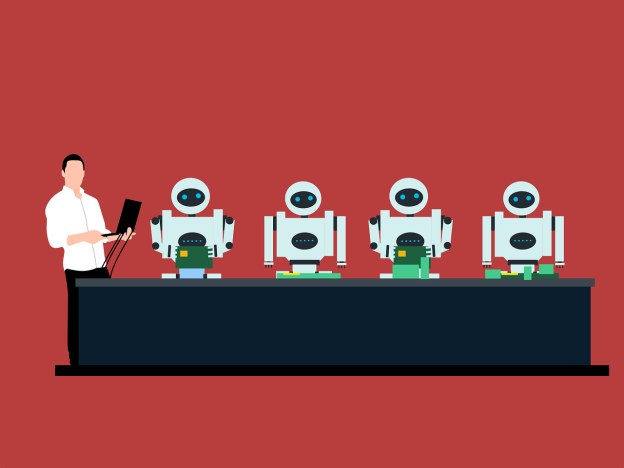Imagine a world where robots and artificial intelligence take over a significant portion of our daily tasks and jobs, leaving many industries in jeopardy. In this article, we explore the future of automation and highlight the industries that are most vulnerable to an AI take over. From manufacturing to transportation, healthcare, and even customer service, no industry is safe from the relentless march of technology. Join us as we delve into the potential impacts and discuss the looming challenges that lay ahead for these at-risk sectors. Fasten your seatbelts – the age of AI is upon us, and it’s time to prepare for the changes it will bring.
Impact of AI on Industries
Overview of AI
Artificial Intelligence (AI) is revolutionizing industries across the globe, with its ability to perform tasks that traditionally required human intelligence. AI involves the development of intelligent computer systems that can learn, reason, and self-improve. The technology behind AI includes machine learning, deep learning, natural language processing, and robotics.
Benefits of AI in Industries
AI has numerous benefits that have a significant impact on industries. One of the key benefits is increased efficiency and productivity. AI-powered systems can automate labor-intensive tasks, thereby reducing human effort and time consumption. This automation allows businesses to reallocate resources towards more strategic and creative endeavors.
Moreover, AI can enhance accuracy and precision in decision-making. By analyzing vast amounts of data and identifying patterns, AI systems can generate insights and recommendations that enable businesses to make informed choices. This ability improves the overall quality of decision-making processes, leading to more successful outcomes.
Additionally, AI has the potential to improve customer experiences. Through natural language processing and machine learning algorithms, AI can understand and anticipate customer preferences, enabling personalized interactions and recommendations. This level of personalized service can drive customer satisfaction and loyalty, ultimately benefiting businesses.
Challenges of AI in Industries
While AI presents a wealth of opportunities, it also brings about certain challenges for industries. One of the main concerns is job displacement. AI technology has the potential to automate tasks that were previously handled by humans, leading to fears of widespread unemployment. This displacement may particularly impact industries that heavily rely on manual labor or repetitive tasks.
Another challenge is the ethical implications of AI in decision-making. As AI systems become more advanced, they may encounter complex ethical dilemmas. For example, the use of AI systems in autonomous vehicles raises questions about prioritizing human lives in potential accidents. Industries need to address these ethical concerns and develop guidelines to ensure responsible and ethical AI use.
Furthermore, AI implementation requires substantial investment, both in terms of technology infrastructure and skilled workforce. Smaller businesses may face difficulties in adopting AI due to financial constraints or lack of access to specialized talent. Bridging this gap and making AI more accessible is crucial for its widespread adoption across industries.

This image is property of pixabay.com.
Industries at Risk of AI Takeover
As AI continues to advance and disrupt various sectors, certain industries are particularly vulnerable to its takeover. Let’s examine which industries are at risk:
Manufacturing and Production
Manufacturing and production industries are at the forefront of automation and AI integration. The repetitive nature of tasks in these industries makes them highly susceptible to automation. AI-powered robots can perform assembly line tasks with precision and speed, reducing the need for human intervention. While this may improve efficiency, it also raises concerns about job security for workers in these industries.
Transportation and Logistics
The transportation and logistics industry faces a significant impact from AI. Autonomous vehicles powered by AI are already being tested and developed. These self-driving vehicles have vast potential in reducing accidents, optimizing fuel consumption, and improving overall efficiency in the transportation sector. However, the adoption of AI in this industry raises questions regarding the safety and reliability of autonomous systems.
Retail
AI’s impact on the retail industry is already evident in the form of chatbots, virtual assistants, and personalized customer recommendations. AI-powered systems can analyze customer data to provide personalized shopping experiences, enhancing customer satisfaction. Moreover, automation in inventory management and supply chain optimization improves efficiency and reduces costs. However, the rise of AI in retail may lead to job displacement, especially in roles such as cashiers and inventory management.
Customer Service and Support
AI is reshaping the field of customer service and support. Chatbots and virtual assistants can handle customer inquiries, provide customer support, and even assist in making purchasing decisions. These AI-powered systems can work 24/7, ensuring prompt and consistent customer service. However, there is a need to strike a balance between AI and human interaction to maintain a personalized and empathetic customer experience.
Healthcare
AI has the potential to revolutionize healthcare by improving diagnostics, treatment, and patient care. AI algorithms can analyze vast amounts of medical data, aiding in accurate diagnosis and early detection of diseases. Additionally, robotic systems powered by AI can assist surgeons during complex procedures, reducing risks and improving outcomes. However, the integration of AI in healthcare must address concerns related to data security, privacy, and the need for human expertise in complex medical decision-making.
Finance and Banking
The finance and banking industry heavily relies on data analysis and processing vast amounts of information. AI-powered systems can automate tasks such as fraud detection, risk assessment, and personalized financial recommendations. Moreover, chatbots can provide personalized customer support and assist in financial planning. However, ensuring data privacy and transparency is crucial in this industry to build trust in AI systems.
Legal Services
AI has the potential to streamline legal processes and improve efficiency in the legal services industry. AI-powered systems can analyze vast volumes of legal texts, aiding in legal research and case analysis. Additionally, AI can automate contract reviews and assist in drafting legal documents. However, concerns regarding the ethical implications of AI in legal decision-making and the need for human expertise in complex legal matters need to be addressed.
Journalism and Media
AI is making its presence felt in the field of journalism and media. Automated news-writing algorithms can generate news articles based on data analysis, making reporting more efficient. AI-powered recommendation systems also play a vital role in delivering tailored content to audiences. However, ensuring the authenticity and accuracy of AI-generated content remains a challenge in the industry.
Education
AI has enormous potential in transforming education by personalizing learning experiences and improving educational outcomes. Intelligent tutoring systems can adapt to the individual learning needs of students, providing personalized and interactive learning materials. AI chatbots can also assist in answering student queries and supporting administrative tasks. However, concerns surrounding data privacy, algorithm bias, and the role of human educators need careful consideration.
Agriculture
The agriculture industry can benefit greatly from AI technologies. AI-powered systems can analyze soil data, weather patterns, and plant characteristics to optimize crop yields and reduce resource waste. Drones equipped with AI can monitor crops, identify pests or diseases, and provide targeted treatment options. However, the adoption of AI in agriculture requires addressing challenges such as data accessibility, technical skills, and affordability for small-scale farmers.
In conclusion, AI is revolutionizing industries, bringing both benefits and challenges. While certain industries are more vulnerable to AI takeover, the integration of AI can lead to increased efficiency, improved decision-making, and enhanced customer experiences. It is crucial for industries to embrace AI responsibly, address ethical concerns, and ensure access and inclusivity in the adoption of AI technologies to maximize the potential of this transformative technology.

This image is property of pixabay.com.
